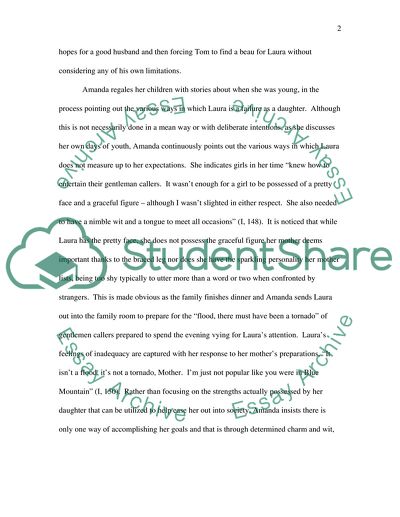Cite this document
(“Lauras Broken Heart: The Glass Menagerie by Tennessee Williams's Essay”, n.d.)
Lauras Broken Heart: The Glass Menagerie by Tennessee Williams's Essay. Retrieved from https://studentshare.org/literature/1540720-tennessee-williamss-the-glass-menagerie
Lauras Broken Heart: The Glass Menagerie by Tennessee Williams's Essay. Retrieved from https://studentshare.org/literature/1540720-tennessee-williamss-the-glass-menagerie
(Lauras Broken Heart: The Glass Menagerie by Tennessee Williams'S Essay)
Lauras Broken Heart: The Glass Menagerie by Tennessee Williams'S Essay. https://studentshare.org/literature/1540720-tennessee-williamss-the-glass-menagerie.
Lauras Broken Heart: The Glass Menagerie by Tennessee Williams'S Essay. https://studentshare.org/literature/1540720-tennessee-williamss-the-glass-menagerie.
“Lauras Broken Heart: The Glass Menagerie by Tennessee Williams'S Essay”, n.d. https://studentshare.org/literature/1540720-tennessee-williamss-the-glass-menagerie.


